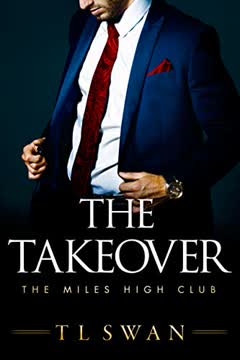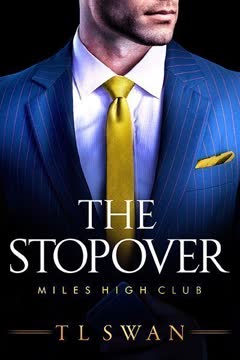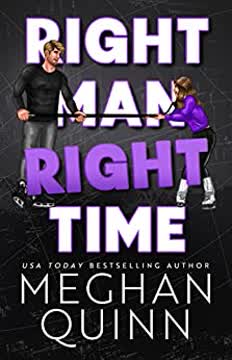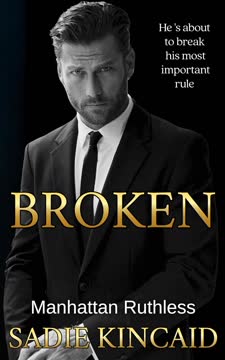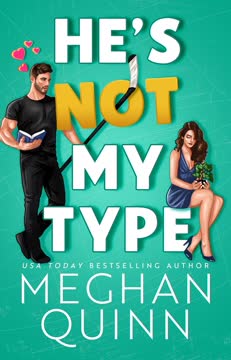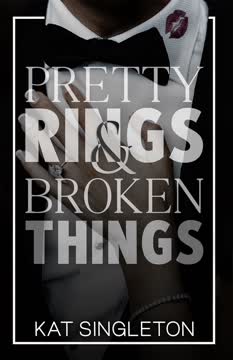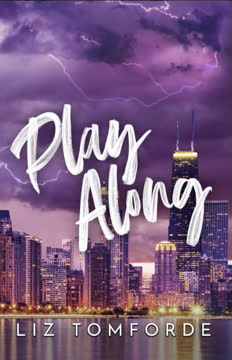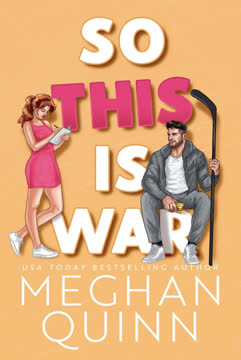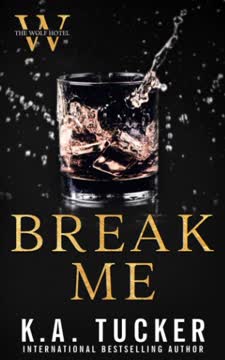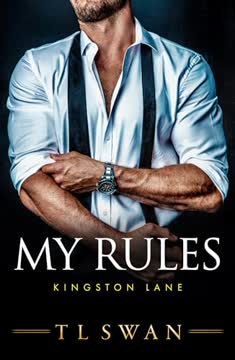Plot Summary
Wolves at the Door
Claire Anderson, a widowed mother of three, is fighting to keep her late husband's company, Anderson Media, afloat. The business is bleeding money, staff have been cut, and the wolves—corporate raiders like Tristan Miles—are circling. Tristan, a ruthless, wealthy acquisitions expert, is infamous for buying struggling companies, gutting them, and turning a profit. Claire despises everything he stands for, but with her company on the brink, she's forced to meet with him. Their first encounter is a battle of wills: Claire's pride and grief clash with Tristan's confidence and charm. The meeting is tense, laced with mutual attraction and mutual disdain, setting the stage for a high-stakes personal and professional standoff.
The Reluctant Deal
Claire's world is defined by loss—her husband's death, the slow collapse of their shared dream, and the weight of raising three boys alone. Tristan's offer to buy Anderson Media is both a lifeline and a threat. He's persistent, intelligent, and uncomfortably attractive, but Claire refuses to let go of her husband's legacy. Their negotiations are fraught with emotion: Claire's loyalty to her late husband and her children, Tristan's relentless pursuit, and the simmering chemistry between them. The deal is more than business; it's a test of identity, memory, and the possibility of moving on.
Ghosts and Promises
Haunted by her husband's memory, Claire is paralyzed by guilt and the promises she made to him. Her children, especially her youngest, Patrick, cling to stories of their father, while Claire clings to her wedding rings and the house they built together. Friends urge her to take a break, to live again, but she's stuck between honoring the past and surviving the present. The threat of losing everything forces Claire to confront her grief, her responsibilities, and the possibility that she might deserve happiness again.
Champagne and Collision
A self-help conference in France offers Claire a rare escape. But fate intervenes: Tristan is the keynote speaker. Their antagonism flares, but so does their attraction. Forced into close proximity, their banter turns flirtatious, then incendiary. Both are surprised by the depth of their connection—Tristan by Claire's resilience and vulnerability, Claire by Tristan's unexpected tenderness beneath his hard exterior. The conference becomes a crucible, burning away pretense and exposing raw need.
Sparks and Standoffs
A night of passion in France shatters Claire's self-imposed isolation. For Tristan, it's more than a conquest; he's drawn to Claire's strength and her scars. But old wounds run deep. Claire's guilt over her husband, her fear of being judged, and her need to protect her children make her push Tristan away. Tristan, used to getting what he wants, is both frustrated and fascinated. Their affair is a dance of advances and retreats, each encounter deepening their bond but also their doubts.
The Parisian Gamble
Tristan invites Claire to Paris, offering her a taste of a life she's never allowed herself to imagine. In the city of light, they let go—of grief, of fear, of the past. They laugh, make love, and for a moment, believe in the possibility of a future together. But reality intrudes: Claire's responsibilities, Tristan's reputation, and the ever-present shadow of her late husband. The weekend is a turning point, but also a reminder that love is never simple.
Hearts on the Line
Back in New York, Tristan tries to integrate into Claire's chaotic family life. Her sons are wary, especially the eldest, Fletcher, who is fiercely protective. Tristan's attempts to connect are met with suspicion, pranks, and outright hostility. Yet, he persists, winning over the boys with patience, humor, and genuine care. Claire, torn between loyalty to her husband's memory and her growing love for Tristan, struggles to balance the needs of her children with her own desires.
Family, Friction, and Forgiveness
As Tristan becomes more involved, he proposes changes: a new house, a new school, a new life. Claire resists, clinging to the home and traditions she shared with her late husband. Tensions rise as Tristan's desire to adopt the boys and fully claim them as his own clashes with Claire's need to honor her past. The family is thrown into turmoil, with the children caught in the crossfire. Both Claire and Tristan must confront what they're willing to sacrifice—and what they can't let go.
The Cost of Control
The relationship reaches a breaking point when Tristan insists on adopting the boys, seeing it as a declaration of love and commitment. Claire, terrified of losing her children's connection to their father, refuses. Harsh words are exchanged, wounds are reopened, and Tristan leaves. Both are devastated, each believing they're doing what's best for the family. The cost of control—over the past, over the future, over each other—becomes painfully clear.
The Breaking Point
Separated, Claire and Tristan are both miserable. The children, especially Harry and Patrick, act out, desperate for the family they've come to love. When the boys run away to Paris to find Tristan, the depth of their bond is revealed. The crisis forces Claire to confront her fears and admit what she truly wants. Tristan, too, realizes that love is not about possession, but about presence and acceptance.
Runaways and Realizations
The boys' journey to Paris is reckless but heartfelt, a testament to the family they've built with Tristan. Their reunion is emotional, raw, and healing. Claire, seeing her children's devotion, finally lets go of her need to control every outcome. Tristan, moved by the boys' trust, agrees to love them as they are, without legal claims or conditions. The family, battered but unbroken, begins to heal.
Coming Home
Back in New York, Claire and Tristan recommit to each other and to the children. They learn that family is not defined by blood or law, but by love, loyalty, and shared struggle. Claire's business is saved, not by a corporate takeover, but by the collective effort and resilience of everyone involved. The past is honored, but the future is embraced.
The Proposal
With the wounds of the past finally healing, Tristan proposes to Claire, involving the boys in the decision. The family, once fractured, is now united. The proposal is not just a romantic gesture, but a declaration of intent: to build a life together, to honor what was lost, and to cherish what has been found.
New Beginnings
The story ends with a new beginning: Claire and Tristan, married, expecting a child, and surrounded by the family they fought so hard to create. The journey has been one of grief and healing, of pride and surrender, of fear and hope. In the end, love is not about erasing the past, but about building a future—together.
Characters
Claire Anderson
Claire is the heart of the story—a woman defined by love, loss, and resilience. After her husband's sudden death, she is left to raise three boys and keep his company alive. Her identity is bound to promises made to her late husband, and she struggles to balance honoring his memory with the need to move forward. Claire is fiercely loyal, stubborn, and self-sacrificing, often to her own detriment. Her journey is one of learning to let go—of grief, of guilt, and of the illusion of control. Through her relationship with Tristan, she confronts her deepest fears and discovers that vulnerability is not weakness, but strength.
Tristan Miles
Tristan is a man used to winning—at business, at life, at love. His reputation as a ruthless acquisitions expert masks a deep longing for connection and family. Beneath his confidence and charm lies a man scarred by his own family's emotional distance and a string of failed relationships. Tristan is drawn to Claire's strength and her scars, seeing in her the possibility of redemption and home. His journey is one of humility—learning that love cannot be bought, controlled, or forced, and that true belonging comes from acceptance, not conquest.
Fletcher Anderson
Fletcher is Claire's oldest, a teenager thrust into the role of man of the house after his father's death. He is fiercely protective of his mother and brothers, suspicious of Tristan, and resistant to change. Fletcher's journey is about trust—learning to let others in, to accept help, and to believe that love can be shared without diminishing the past.
Harry Anderson
Harry is the wild card—angry, impulsive, and deeply affected by his father's death. His acting out masks a profound sense of loss and a desperate need for stability. Harry's relationship with Tristan is fraught, but ultimately transformative, as he learns that love can come from unexpected places.
Patrick Anderson
Patrick, the youngest, is gentle, wise beyond his years, and the most openly affected by his father's absence. He idolizes his father and struggles to let go. Patrick's bond with Tristan is immediate and deep, symbolizing the possibility of healing and new beginnings.
Marley Smithson
Marley is Claire's best friend and confidante, providing support, humor, and tough love. She pushes Claire to take risks, to live again, and to believe in the possibility of happiness. Marley is the anchor that keeps Claire grounded.
Elizabeth Miles
Elizabeth represents the old guard—concerned with appearances, legacy, and the preservation of family. Her doubts about Claire and her influence over Tristan create tension, forcing both Tristan and Claire to confront their own insecurities and desires.
Wade Anderson
Though deceased, Wade's influence permeates the story. He is the standard by which Claire measures all love, the father her children mourn, and the dream she struggles to keep alive. Letting go of Wade is the hardest, most necessary step for Claire and her family.
Gabriel Ferrara
Gabriel is a friend and potential suitor, offering Claire both business advice and a safe, platonic relationship. He represents the road not taken—a life of security without passion, and a reminder that love is a choice, not a default.
The Miles Brothers
Elliot, Christopher, and Jameson provide context for Tristan's character—his strengths, his flaws, and his longing for family. Their interactions reveal the complexities of sibling rivalry, loyalty, and the search for identity.
Plot Devices
Dual Narration and Shifting Perspectives
The story is told through both Claire and Tristan's perspectives, allowing readers to experience their internal struggles, desires, and misunderstandings. This device deepens empathy and highlights the ways in which love is shaped by both shared experience and private pain.
The Ghost of the Past
Wade's presence haunts every decision, conversation, and relationship. The past is not just backstory—it is an active force, shaping the present and threatening the future. The struggle to honor the dead while embracing the living is the central tension of the novel.
The Reluctant Family
The process of integrating Tristan into Claire's family is fraught with resistance, sabotage, and eventual acceptance. The children's pranks, the battle over adoption, and the runaway episode all serve as crucibles, testing the strength of the new family and the depth of Tristan's commitment.
The Business as Metaphor
The fate of Anderson Media is a stand-in for Claire's heart: vulnerable, fiercely defended, and ultimately in need of rescue. The negotiations, power plays, and eventual surrender reflect the emotional journey of the characters.
Foreshadowing and Repetition
Phrases, memories, and promises recur throughout the story, creating a sense of inevitability and continuity. The repetition of vows, the symbolism of the house, and the motif of running away all foreshadow the ultimate resolution: that love requires both holding on and letting go.
Analysis
The Takeover is a contemporary romance that transcends its genre by delving deeply into the psychology of grief, the complexity of blended families, and the challenge of loving after loss. T.L. Swan crafts a story that is as much about letting go as it is about holding on—about the ways in which the past can both sustain and suffocate us. The novel interrogates the meaning of family, the limits of loyalty, and the necessity of vulnerability. Its lesson is clear: true love is not about erasing what came before, but about building something new on the foundation of memory and hope. In a world obsessed with control, The Takeover reminds us that the greatest acts of courage are surrender—to love, to change, and to the messy, beautiful work of starting over.
Last updated:
FAQ
Synopsis & Basic Details
What is The Takeover about?
- A Widow's Fight: Claire Anderson, a fiercely independent widow and mother of three, desperately battles to save her late husband's struggling company, Anderson Media, from financial ruin and a predatory corporate takeover.
- The Ruthless Suitor: Her primary antagonist is Tristan Miles, a notoriously charming yet cold-hearted acquisitions expert, whose relentless pursuit of Anderson Media clashes with Claire's deep loyalty to her husband's legacy.
- Unexpected Connection: What begins as a high-stakes business negotiation quickly evolves into a complex personal entanglement, as Claire and Tristan find themselves unexpectedly drawn to each other, forcing them to confront their pasts, desires, and definitions of family.
Why should I read The Takeover?
- Emotional Depth & Growth: The novel offers a compelling exploration of grief, healing, and the courage it takes to embrace new love after profound loss, particularly through Claire's journey of letting go of the past.
- Dynamic Character Arcs: Readers will be captivated by the evolution of both Claire and Tristan, as the ruthless businessman reveals unexpected tenderness and the grieving widow rediscovers passion and joy.
- Engaging Banter & Chemistry: Beyond the emotional core, the book is filled with witty, often hilarious, dialogue and undeniable sexual tension between the protagonists, making for a truly entertaining read.
What is the background of The Takeover?
- Corporate Predator vs. Legacy: The story is set against the backdrop of New York's competitive media industry, where Miles Media, a powerful conglomerate, targets smaller, struggling family-owned businesses like Anderson Media for acquisition.
- Grief and Single Parenthood: Claire's personal background is deeply rooted in the unexpected death of her husband, Wade, five years prior, leaving her as a sole parent navigating financial hardship and the emotional complexities of raising three boys.
- Miles Family Dynamics: Tristan's background reveals a privileged but emotionally distant upbringing, with his family's immense wealth and corporate expectations shaping his ruthless exterior, contrasting with his hidden longing for genuine connection.
What are the most memorable quotes in The Takeover?
- "I always get what I want.": This declaration by Tristan Miles early in the narrative encapsulates his relentless drive and serves as a recurring motif, initially a threat to Claire but later a testament to his unwavering pursuit of her and their family.
- "You're everything I never knew I wanted.": Tristan's heartfelt admission to Claire signifies his profound shift from seeking superficial relationships to valuing Claire's strength, vulnerability, and the chaotic family life she brings, marking a pivotal turning point in his character arc.
- "He sent Tristan for us, Mom.": Fletcher Anderson's tearful revelation to Claire about his deceased father, Wade, "sending" Tristan, highlights the children's profound acceptance of Tristan and redefines Claire's understanding of love, loss, and divine intervention.
What writing style, narrative choices, and literary techniques does T.L. Swan use?
- Dual Narration and Shifting Perspectives: Swan primarily employs alternating first-person perspectives (Claire and Tristan), offering intimate access to their thoughts, insecurities, and desires, which deepens reader empathy and highlights their contrasting internal worlds.
- Witty Banter & Sexual Tension: The dialogue is sharp, often humorous, and laden with subtext, particularly in the early interactions between Claire and Tristan, effectively building their undeniable chemistry and playful antagonism.
- Emotional Honesty & Vulnerability: Swan doesn't shy away from raw emotional portrayal, especially Claire's struggle with grief and guilt, and Tristan's hidden longing for belonging, grounding the romance in relatable human experience.
Hidden Details & Subtle Connections
What are some minor details that add significant meaning?
- Tristan's "Fixer" Trait: His mother, Elizabeth, reveals that Tristan has a deep-seated psychological need to "fix" things and is drawn to people and businesses in distress, explaining his initial attraction to Anderson Media and, later, to Claire and her chaotic family. This subtle detail, revealed late in the book, reframes his entire motivation.
- Harry's "Tick-Tock" Pranks: Harry's seemingly random acts of mischief, like putting sugar in Tristan's car and hair removal cream in his conditioner, are not just childish antics but a manifestation of his deep-seated grief and protective instincts, symbolized by his "tick-tock" phrase, indicating a countdown to Tristan's departure, which he fears.
- The Spaceship Model: Tristan's purchase of the complex spaceship model for Harry, initially a bribe, becomes a symbol of his genuine effort to connect with the boys on their terms, fostering shared activity and demonstrating his commitment to their world, even if it means enduring chaos.
What are some subtle foreshadowing and callbacks?
- Tristan's "I always get what I want": This early declaration by Tristan, initially perceived as a corporate threat regarding Anderson Media, subtly foreshadows his relentless pursuit of Claire and his eventual integration into her family, demonstrating his unwavering determination in both business and personal life.
- Claire's Wedding Rings: Her struggle to remove her wedding rings in Chapter 3, and her later re-wearing them during a moment of emotional distress, subtly foreshadows the central conflict of letting go of the past and her deep-seated guilt, which Tristan eventually confronts.
- The "Grandma Tea" Joke: Tristan's playful mockery of Claire's preference for "grandma tea" evolves into a tender callback when he orders it for her at a fancy dinner, symbolizing his growing attentiveness to her small preferences and his acceptance of her "normal" life.
What are some unexpected character connections?
- Tristan and Harry's Shared Grief: The most unexpected connection is revealed when Tristan takes Harry to Wade's grave, where they share cigars. This moment, hidden from Claire, shows Tristan's profound empathy for Harry's unspoken grief and establishes a unique, healing bond between them, transcending their initial antagonism.
- Tristan's Bond with Patrick: Despite his initial aversion to children, Tristan forms an immediate and deep connection with Patrick, the youngest. Patrick's innocent adoration and Tristan's patient, playful responses (e.g., watching movies, calling him "Tricky") highlight Tristan's innate capacity for fatherly love, surprising both Claire and himself.
- Fletcher's Loyalty to Tristan: Fletcher, initially fiercely protective of Claire and suspicious of Tristan, eventually develops a deep respect and loyalty towards him, even defending Tristan to Claire. This shift is unexpected given their initial physical altercation and Fletcher's strong desire to protect his mother's legacy.
Who are the most significant supporting characters?
- Marley Smithson: Claire's best friend and assistant, Marley serves as a crucial catalyst for Claire's emotional growth, consistently pushing her out of her comfort zone, encouraging her to embrace new experiences (like the conference), and providing a much-needed dose of pragmatic, humorous reality.
- Elizabeth Miles (Tristan's Mother): Beyond her initial traditionalist concerns, Elizabeth plays a pivotal role in revealing Tristan's core psychological trait – his "fixer" complex – which provides profound insight into his motivations and past relationships, forcing Tristan to confront his own patterns.
- Harry Anderson: As the rebellious middle child, Harry's actions, particularly his pranks and eventual runaway attempt, are significant drivers of the plot and emotional turning points, forcing both Claire and Tristan to confront their deepest fears and re-evaluate their priorities.
Psychological, Emotional, & Relational Analysis
What are some unspoken motivations of the characters?
- Claire's Guilt-Driven Self-Sabotage: Claire's deep-seated guilt over Wade's death and her promise to uphold his dreams subconsciously drives her to self-sabotage new relationships and opportunities for happiness, believing she doesn't deserve to move on. Her reluctance to fully embrace Tristan stems from this internal conflict, fearing it dishonors Wade.
- Tristan's Quest for Unconditional Belonging: Beneath his ruthless corporate exterior, Tristan is driven by an unspoken longing for a genuine, unconditional family connection, a void left by his emotionally distant upbringing. His pursuit of Claire and her children is less about conquest and more about finding a place where he truly belongs and is needed.
- Harry's Cry for Stability: Harry's rebellious behavior, including his pranks and running away, is an unspoken cry for stability and a desperate attempt to control his environment after the profound loss of his father. His actions are a manifestation of his fear of further abandonment and his desire for a consistent male figure.
What psychological complexities do the characters exhibit?
- Claire's Trauma-Induced Stagnation: Claire exhibits a complex psychological state of stagnation, where her grief over Wade's death has frozen her emotional and personal life for five years. She clings to familiar routines and objects (the house, the rings) as a defense mechanism against further pain, making her resistant to change and new relationships.
- Tristan's "Fixer" Archetype: Tristan embodies the "fixer" archetype, a psychological compulsion to solve problems and rescue those in need, stemming from his own unaddressed emotional needs. This trait, revealed by his mother, explains his attraction to struggling businesses and, more profoundly, to Claire's vulnerability and her family's chaos, highlighting a potential blind spot in his understanding of love.
- The Children's Manifestations of Grief: Each of Claire's sons displays distinct psychological complexities related to their father's death: Fletcher's overprotective nature, Harry's rebellious acting out and "tick-tock" pranks (symbolizing his fear of loss), and Patrick's innocent clinging to memories and need for a consistent male presence.
What are the major emotional turning points?
- Claire's Removal of Wedding Rings: A significant emotional turning point occurs when Claire, urged by Marley, finally removes her wedding rings. This act symbolizes her conscious decision to begin letting go of her past grief and open herself to the possibility of a future, even if it's terrifying.
- Tristan's Visit to Wade's Grave with Harry: Tristan's decision to take Harry to his father's grave and share a cigar marks a profound emotional shift for Tristan, demonstrating his empathy and willingness to embrace the complexities of Claire's family, solidifying his commitment beyond mere attraction.
- The Children's Runaway to Paris: The boys' desperate act of running away to Paris to find Tristan is a critical emotional turning point, forcing Claire to fully acknowledge the depth of their bond with him and compelling her to surrender her fears and accept Tristan's place in their lives.
How do relationship dynamics evolve?
- Antagonism to Passion: The dynamic between Claire and Tristan dramatically evolves from initial mutual disdain and corporate antagonism to intense physical attraction and, eventually, deep emotional love, driven by their witty banter and unexpected vulnerabilities.
- Parental Protection to Shared Responsibility: Claire's relationship with her children shifts from her sole, often overwhelming, protective role to a shared responsibility with Tristan, as he gradually earns their trust and actively participates in their lives, offering a different kind of support and perspective.
- Miles Family's Emotional Opening: Tristan's relationship with his own family, particularly his brothers and mother, evolves as he becomes more emotionally open and vulnerable about his feelings for Claire, leading to greater acceptance and support from them, culminating in his mother's crucial revelation about his "fixer" trait.
Interpretation & Debate
Which parts of the story remain ambiguous or open-ended?
- The Long-Term Impact of Tristan's "Fixer" Trait: While Tristan's mother identifies his compulsion to "fix" things, the story leaves open how this trait might manifest in his long-term relationship with Claire and the children once their initial "problems" are resolved, or if he will truly overcome it.
- The Children's Full Acceptance of Tristan: Although the boys eventually accept Tristan, the narrative doesn't fully explore the long-term psychological impact of their father's death and how they will navigate having a new father figure, leaving room for future challenges in their blended family dynamic.
- The Future of Anderson Media: While Tristan takes over as CEO, the specific strategies and challenges of rebuilding Anderson Media under his leadership, and how this new professional dynamic will impact his relationship with Claire, remain largely unexplored beyond the initial decision.
What are some debatable, controversial scenes or moments in The Takeover?
- Tristan's Initial Pursuit of Anderson Media: His ruthless corporate tactics, described as "gutting" companies and acting like a "leech," are highly debatable. Readers might question if Tristan's initial predatory behavior can be fully redeemed by his later romantic actions, or if it's simply a different form of "takeover."
- The Adoption Conflict: The heated argument over Tristan's desire to adopt Claire's children is a controversial moment. Claire's refusal, rooted in loyalty to Wade's memory, clashes with Tristan's desire for legal recognition and a "real" family, sparking debate about the boundaries of new love and honoring the deceased.
- Harry's Pranks and Tristan's Response: Harry's extreme pranks (sugar in the car, hair removal cream) and Tristan's initial, equally extreme reactions (threatening to "kill" him, calling him "psychotic") can be controversial. It raises questions about appropriate discipline and the psychological impact of such intense conflict on a child.
The Takeover Ending Explained: How It Ends & What It Means
- Reconciliation and Family Unity: The ending sees Claire and Tristan reconcile after the boys run away to Paris, forcing Claire to confront her fears and Tristan to accept the children without legal adoption. This signifies a shift from control to unconditional love, forming a united, albeit unconventional, family.
- New Beginnings and Personal Growth: Tristan proposes to Claire, involving the boys in the decision, and Claire reveals she is pregnant. This symbolizes a new chapter, not just for their relationship but for their individual growth, as Claire fully embraces a future beyond grief and Tristan finds the family he always craved.
- Sacrifice and Redefinition of Success: Tristan leaves his powerful CEO position at Miles Media to become CEO of Anderson Media, working alongside Fletcher. This profound sacrifice redefines his personal success, prioritizing family and love over corporate power, and fulfilling Wade's dream in an unexpected way.
Review Summary
The Takeover is a popular romance novel that has received overwhelmingly positive reviews. Readers praise the chemistry between the main characters, Tristan and Claire, as well as the humorous and heartwarming interactions between Tristan and Claire's children. Many reviewers found the book to be a perfect blend of steamy romance, emotional depth, and laugh-out-loud moments. While some readers had minor issues with certain plot points or character decisions, the majority found it to be an enjoyable and engaging read that left them eager for more from the series.
Miles High Club Series
Similar Books
Download PDF
Download EPUB
.epub digital book format is ideal for reading ebooks on phones, tablets, and e-readers.
